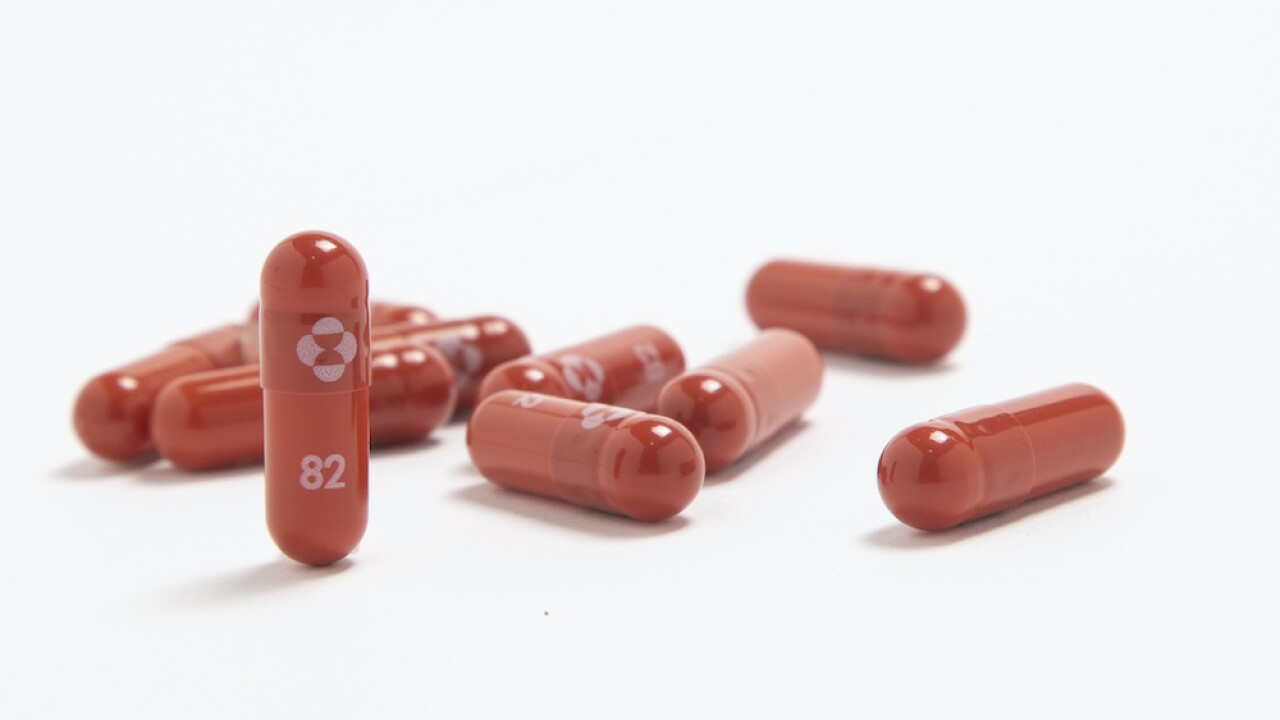LONDON — Pharmaceutical company Merck has agreed to allow other drug makers to make its COVID-19 treatment, the first pill that has been shown to be effective against the disease.
The move aims to help millions of people in poorer countries get access to the drug.
The U.N.-backed Medicines Patent Pool said in a statement on Wednesday that it had signed a voluntary licensing agreement for molnupiravir with Merck and its partner, Ridgeback Biotherapeutics.
The deal will allow the Medicines Patent Pool to grant further licenses to qualified companies wishing to make the drug.
Neither drug maker will receive royalties under the agreement for as long as the World Health Organization deems COVID-19 to be a global emergency.
Molnupiravir is a form of a potent ribonucleoside analog that inhibits the replication of the COVID-19 virus.
Earlier this month, Merck said trials showed the drug cut down on hospitalizations and deaths in adult patients with laboratory-confirmed mild to moderate COVID-19 who had at least one risk factor associated with poor disease outcomes.
After the release of the clinical trial results, White House medical adviser Dr. Anthony Fauci said the data on the drug was promising.
"There was a 50% diminution of importance, is that in the placebo group there were eight deaths and in the treatment group, there were no deaths. That's also very important and very good news," Fauci said.
The federal government has already purchased 1.7 million doses of Merck's drug with the option to purchase more.
"If approved, I think the right way to think about this is a potential additional tool in our toolbox to protect people from the worst outcomes of COVID," White House COVID-19 response team coordinator Jeff Zients said earlier this month. "But I think it's really important to remember that vaccination remains far and away our best tool against COVID-19. It can prevent you from getting COVID in the first place, and we want to prevent infections, not just wait to treat them once they happen."

